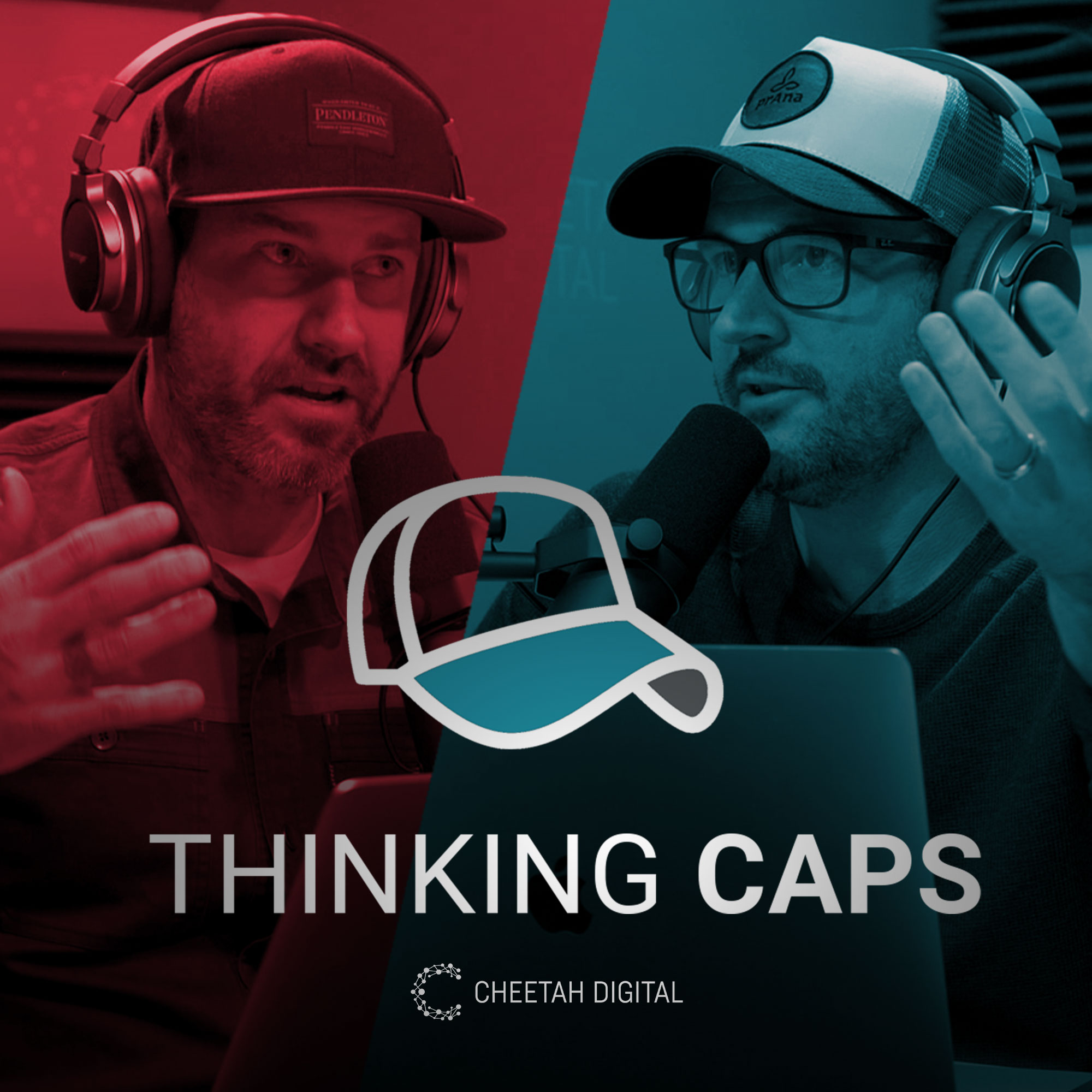
- 0.5
- 1
- 1.25
- 1.5
- 1.75
- 2
Apple Brings The Privacy Battle To Your Living Room
Richard: One of the richest and most powerful companies in the world has made privacy their number one advertising goal. Stay tuned.
Tim: The street fight for privacy and tracking consumer behavior just hit every consumer's living room. This amazing ad from Apple just hit this week.
Richard: Yeah. I mean, look, the most powerful company in the mobile ecosystem, probably. I think it's fair to say if not the, then one of the top three or four most powerful brands when it comes to consumer attention. This is really big news. I feel like we've got to play it.
Tim: Well, let's play it. Let's give you some context on what we're talking about. This is a new spot from Apple. Just dropped this week. Check it out.
Speaker 3: Felix.
Speaker 4: Name?
Speaker 3: Felix.
Speaker 4: Date of birth?
Speaker 3: November 5th, 1986.
Speaker 5: Tracking current location.
Speaker 6: Here's what you said last night.
Speaker 7: This will help with the itching.
Tim: How genius is that?
Richard: That is fantastic. Look, I mean, at the end of the day, we've been talking about privacy for so long and the massive disruption that has been coming down the line and is happening all around us, but we've never said it as brilliantly as that.
Tim: It's great. You know what? I wish we had the budget to make a inaudible digital commercial like that and put it in everyone's home for the next three months during hockey games and football games and sitcoms and everything. It's genius. So what do you think the impact is when a brand like that puts it literally in front of every single consumer and makes privacy and tracking the number one thing that they care about? Where does that put brands?
Richard: Well, let's face it. Brilliant marketing. And that is a brilliant piece of marketing. That's a brilliant ad. It shifts sentiment, right? It changes the way that people think about the world. It also highlights things that folks may have been slightly conscious of, but it's now right front and center.
Tim: And visualize, like you can now see the impact of a cookie tracking you, right? Itch cream.
Richard: Who wants all those people following you the whole time?
Tim: You told a story on a recent thinking caps or an early thinking caps about getting a hernia operation all of a sudden. So yes, I think it's visualized. I think it's top of mind. I think brands... Any brand that thinks," Ah, we'll get around this tracking and privacy issue," bull honky, man. It is like, it is the number one thing.
Richard: What I take away from this is there are no short- term fixes. A lot of conversation has been dominated by folks in the marketing, advertising and agency space, trying to figure out as some of these privacy changes are rolled out, such as what Apple are doing with privacy on the iPhone and the iOS 14. 5. They're trying to come up with short- term fudges, right? Short- term solutions, short- term workarounds. And the reality is this is now so going to be so mainstream in everyone's consciousness, there is no short- term thinking anymore. There can only be a long- term strategy fix, which is all about marketing to the individual on offering a value exchange in return for their engagement, their data and their loyalty.
Tim: It makes total sense. And I think the heart of the visualization that a lot of consumers are going to have on there is the snooping, right? We've talked a lot about snooping. We've used the word creepy, et cetera. That's really what resonates here for me. Like, it'd be one thing if it was like," Oh, okay, I love you brand X. You're my go- to running gear. Cool. You can have my data." That's not what this commercial conveys. This commercial conveys what is really the problem in advertising right now, is everybody's just trying to latch on and grab as much cookie data as possible. So I love this spot. I think it's great.
Richard: Interestingly, actually, also I think is mirrored in conversations that I'm seeing on the other side of the fence with senior marketers at major B2C brands. I did a round table with the Sunday Times and a host of really well qualified, very, very senior marketers from companies like Anthropologie and AB InBev and others. And they were all saying very much similar things: the most important thing that they were doing right now is figuring out ways to actually talk to the consumer directly, to start to pull back that information that can help power marketing. And really stepping away from this automated world that was driven really from privacy intrusion and overly sophisticated ad tech built on an era of fast and loose data. So we know that the best CMOs, the best marketers they're already thinking about this. They're all already making the change.
Tim: No doubt. And look, it's going to get tougher for brands that don't take this on and don't get a long- term solution, to your point. A customer engagement suite type solution allows them to-
Richard: Loyalty program-
Tim: Correct.
Richard: Some way of building that direct to consumer relationship, building out those first party relationships.
Tim: And it's only going to get worse because this started... Apple's first privacy ad happened, I want to call it 2018. I might be wrong in the year.
Richard: South by Southwest?
Tim: South by no- no. The first one I saw was at CES. It was in January CES in Vegas. When you walked in to CES the largest giant, huge banner was all about privacy. So Apple's not going to let down-
Richard: And that was ringing the bells to the industry, saying we're doing this by going to things like South by Southwest and CES, that was ringing the bells. Now what we're seeing is the consumer push at scale.
Tim: I hope to see an even better commercial in the Super Bowl this year. So brands take note, man, Apple. And why? Let's talk for a second about Apple. Apple can do this. Why? Because Apple doesn't make the majority of their money on advertising. They sell us these products. You don't have one. I do. Or do you?
Richard: No, I've got a Google Pixel.
Tim: He's a Google guy, but I'm Apple. I'm integrated in Apple. They make their money there. They don't need to worry about advertising like Facebook. I mean, this is like a crusher for Facebook to take this into someone's living room on their main TV set. So I think it's great. Brands, don't listen to us, listen to the spot that Apple is putting out there.
Richard: What brands should listen to talk to us about is just thinking through what are the ways that you can build a value exchange to drive that direct consumer engagement. Don't fear. If you haven't built up a large first party database, if you don't have the direct relationships with consumers that you feel that you need given all of this disruption in the ad tech in the privacy space, we can help you. Right? We've got use cases of doing this at scale very quickly for companies and really changing their businesses around. We have many customers that have started from very, very small... They might've been brands that had no kind of e- commerce storefront, no direct to consumer retail connection. And yet in a couple of years, we've built out absolutely massive databases, hugely profitable loyalty programs that aren't about giving away value through discounts. They are experiential. They're ways to bring brands and consumers closer together. And we can do that in a couple of years. And in many of the case studies we could talk to you about, we're talking about 50, 60% of direct to consumer revenue being driven from these loyalty programs, from these value exchanges, from zero party data collection and triggering off the right email, the right message, the right offer of what consumers told you about themselves. So we're here to help.
Tim: And you know, the one thing I'm bummed about on this Apple commercial, it dropped three days before my Ad Age article. There was a homepage Ad Age article that I penned that talked about human conversation, and two people meeting on the street. What would they do? They wouldn't track each other. They'd ask questions of each other and use that information to keep the conversation going. So there is a homepage article here. You may have got in an email from us, but go check that out as well, because it gives you other examples. Rich, to your point. I think I quote in there the Discovery Communications channel, where they actually used our software to collect a hundred million entries with zero party data to power their business forward. So we're almost at time. What are the closing thoughts here?
Richard: Well, closing thought for me is stay tuned. We've got a really interesting discussion with one of the veterans of the loyalty space. The CEO of Reach, Mike Rivera, who's set up loyalty programs at places like Hilton, Eastern Airlines, EA Games, and others. Really, really insightful chat for anybody that's thinking about building those direct to consumer relationships in the future.
Tim: See you soon.
Today's Host

Tim Glomb
Apple doubles down, again, on privacy by launching a brilliant TV spot aimed at consumers visualizing just how annoying 'creepy' third party tracking works. Bringing this topic into the living room is sure to have a massive ripple effect on brands still heavily reliant on third party data and other tracking tactics. We explain why it's never been more important to collect your own data, directly from consumers with consent to use it as you need.